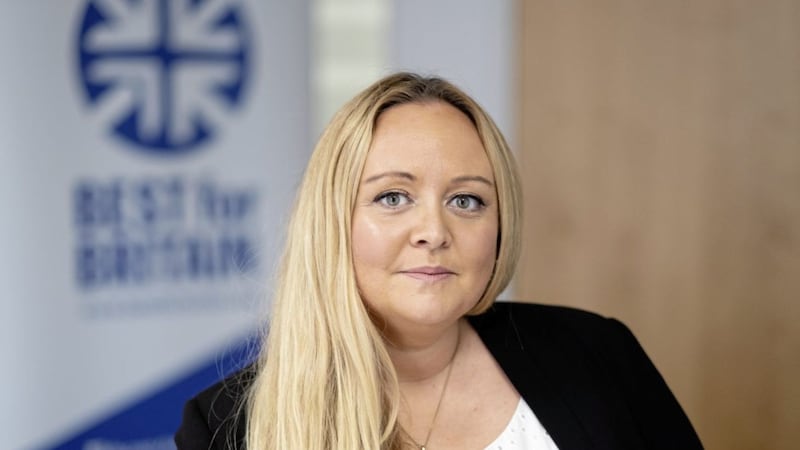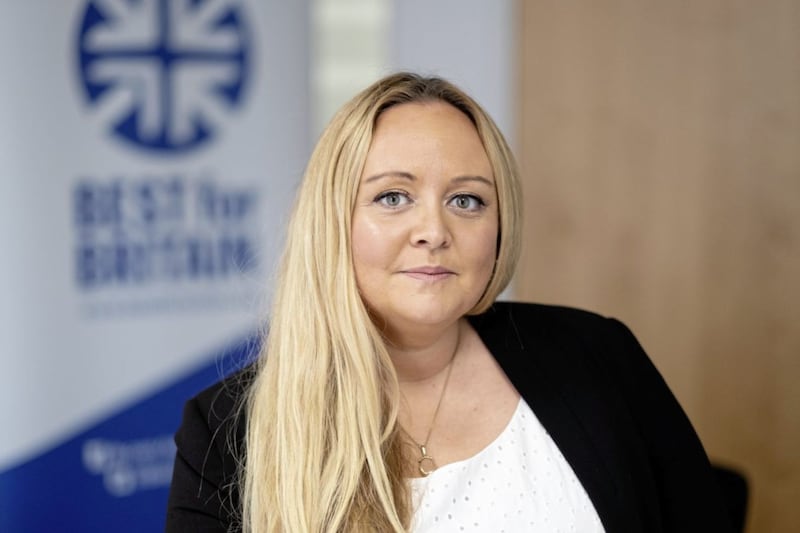Best for Britain's new chief executive Naomi Smith brings personal insight into Northern Ireland's 'frozen peace' and believes the no-deal agenda being pursued by English nationalists would be catastrophic for the region. She tells Political Correspondent John Manley why it's crucial to stop Brexit.
NAOMI Smith is unapologetic in her determination to derail Brexit "using any democratic means". The recently-appointed CEO of the Best for Britain campaign group believes fervently in the values of the EU and reckons that leaving it will bring untold economic and social harm.
"The European Union is the single biggest peace project in human history," she told The Irish News.
"It’s also about prosperity,” she says, pointing out that all the British government’s impact assessments forecast that every part of the UK will be worse off as a result of Brexit.
"We’re in an globalised world with increased protectionism from the US and China and here we are preparing to leave the world’s biggest single market."
She argues that issues like climate change and tax avoidance need to be tackled "not through isolationism but in a multi-national environment". She also believes Brexit is having a "huge detrimental impact" on how the UK is viewed globally.
She identifies a “nostalgia and nativism” as the key driving forces of Brexit, coupled with the working class sense of abandonment.
“Many look back on former decades through rose-tinted glasses and conveniently forget that we didn’t have the same level of women in the workplace and we still had children with polio,” she says.
"For others, they feel let down by successive governments over 30-40 years – they remember when the high street was vibrant and jobs were plenty.”
The Best for Britain CEO lays much of the blame for the referendum outcome at the feet of former prime minister David Cameron, who “gave little thought given to how unpopular he was after more than five years of austerity”.
Smith, who ahead of the 2016 referendum was in charge of London’s pro-EU campaign, believes May’s European Election results show that the UK has changed its mind about Brexit.
Her aim now is ensure Britain’s pro-Remain parties work together to force a second referendum, which she is confident will overturn the previous result. According to Best for Britain’s analysis, 422 out of Westminster’s 650 constituencies are now pro-Remain.
But she still fears that if a no-deal Brexit is not averted its greatest impact will be in destabilising Northern Ireland’s peace process. Although based in England for the past two decades, the 38-year-old has a strong affiliation with the north, dating from a key time in her life and a crucial period in the region's history.
Her father Trevor Smith – now Baron Smith of Clifton – served as vice-chancellor of what was then the University of Ulster, between 1991-1999.
She remembers the tail end of the Troubles but also the heralding of a "new dawn" with the signing of the Good Friday Agreement. Smith is among the significant number in Ireland, Europe and the US, who think Brexit will damage the advances that the 1998 accord helped secure.
She argues that the conflict is not resolved but “frozen”, a situation not fully grasped by many ardent Brexiteers in England, who therefore don’t understand the need for a backstop.
“They talk about the backstop – that gets a huge amount of coverage in the media – but very few actually talk about why it matters,” she says.
“The ones that are the most bullish about Brexit are the ones that least understand this idea of a frozen conflict – and I’d put Boris Johnson and Dominic Raab in that bracket. They don’t understand the importance of the backstop and how Northern Ireland has transformed over the past 25 years.”
Smith believes a majority in Britain understand the need to preserve the peace in Northern Ireland but there are those whose first priority is leaving the EU.
“There’s a small minority but increasingly vocal group of English nationalists who profess to be patriots and will talk about how much they treasure the union – though really it’s not about the union it’s about England,” she says.
The Best for Britain CEO is also miffed by the DUP’s backing for Brexit, which she reckons undermines the unionist cause.
“I can’t see that being supportive of Brexit is actually helpful for their long-term political future," she says.
"We have seen support for Remain increase and the likelihood of a border poll increases as the chances of disaster Brexit grow. I don’t see how that fits well with the political strategy of the DUP."




